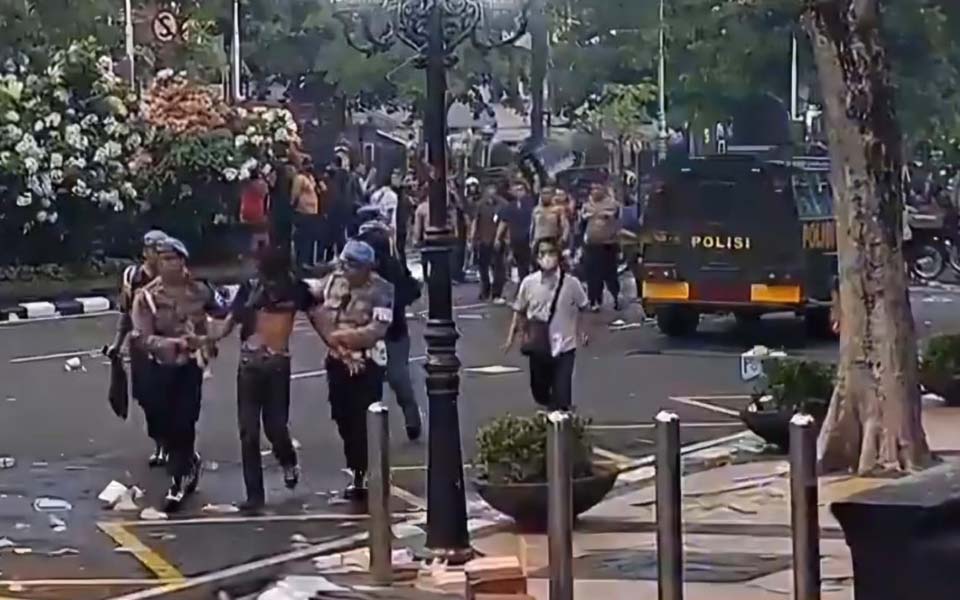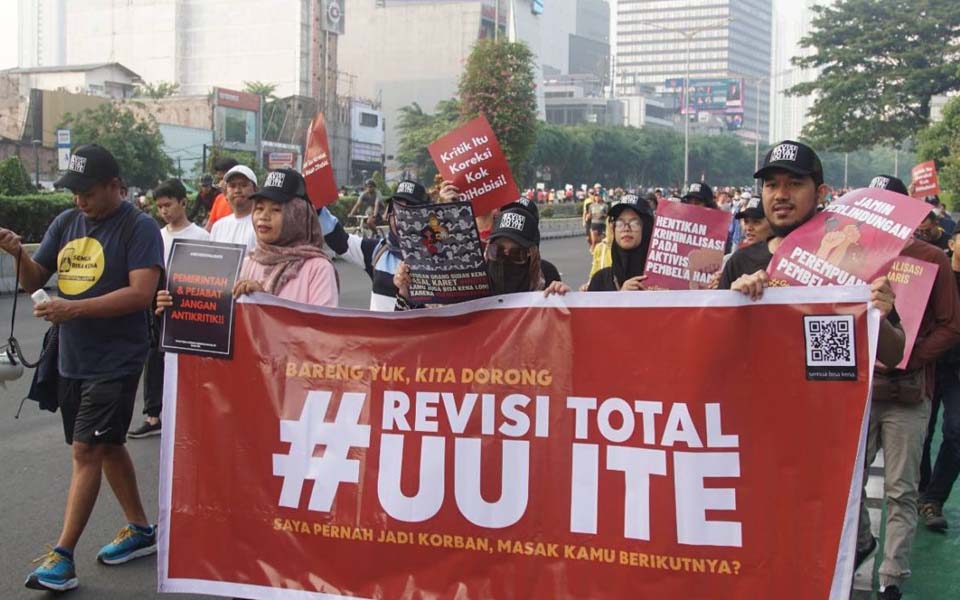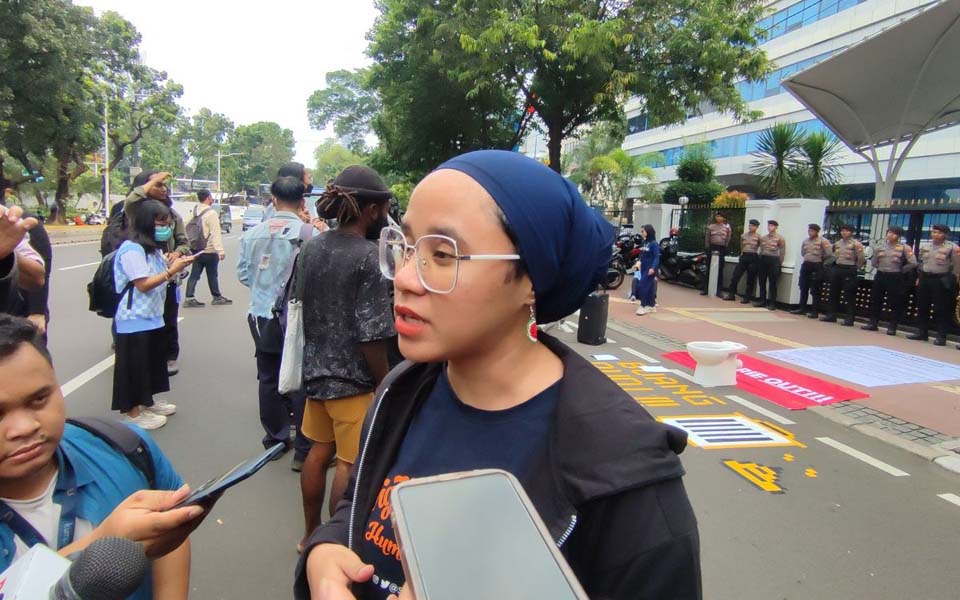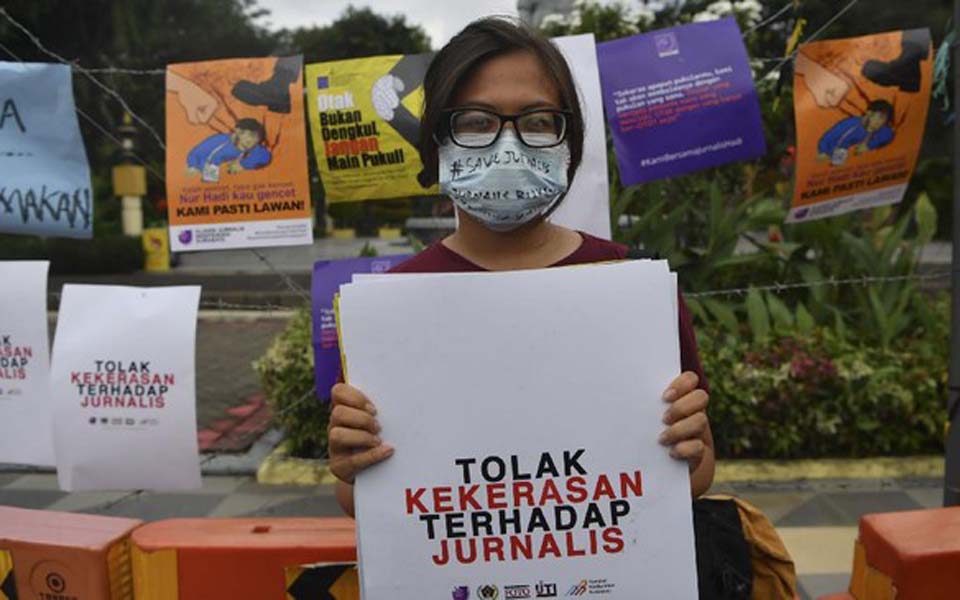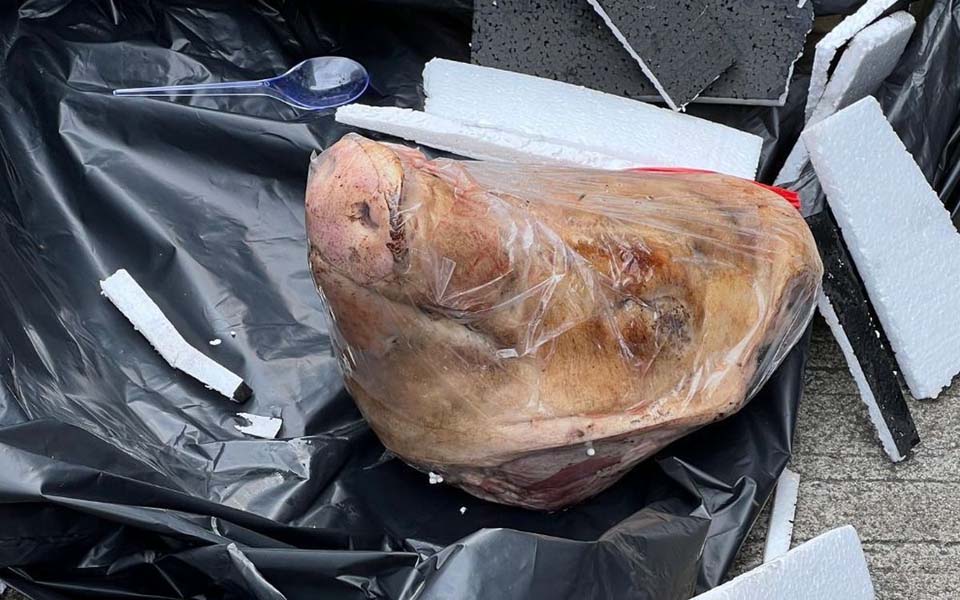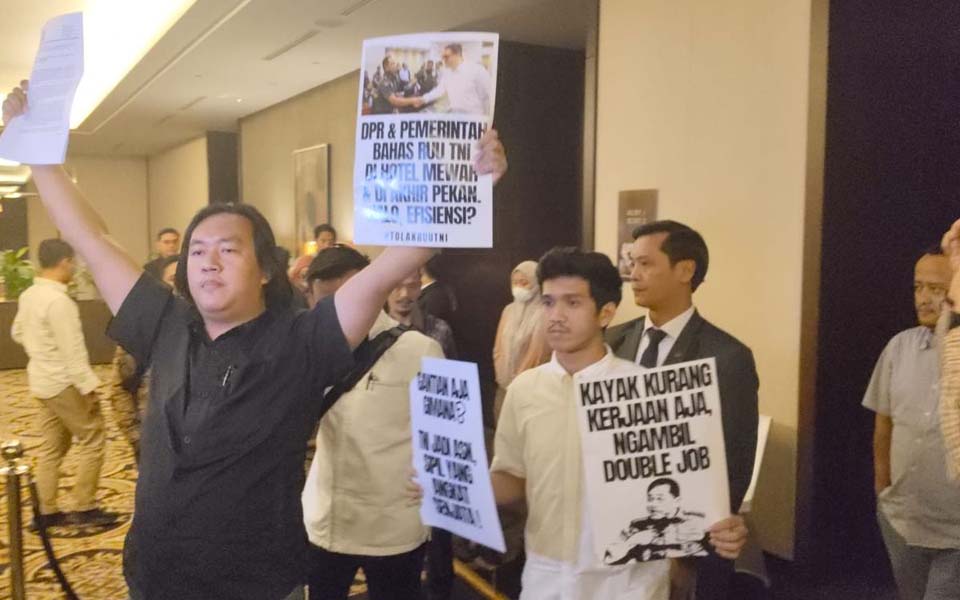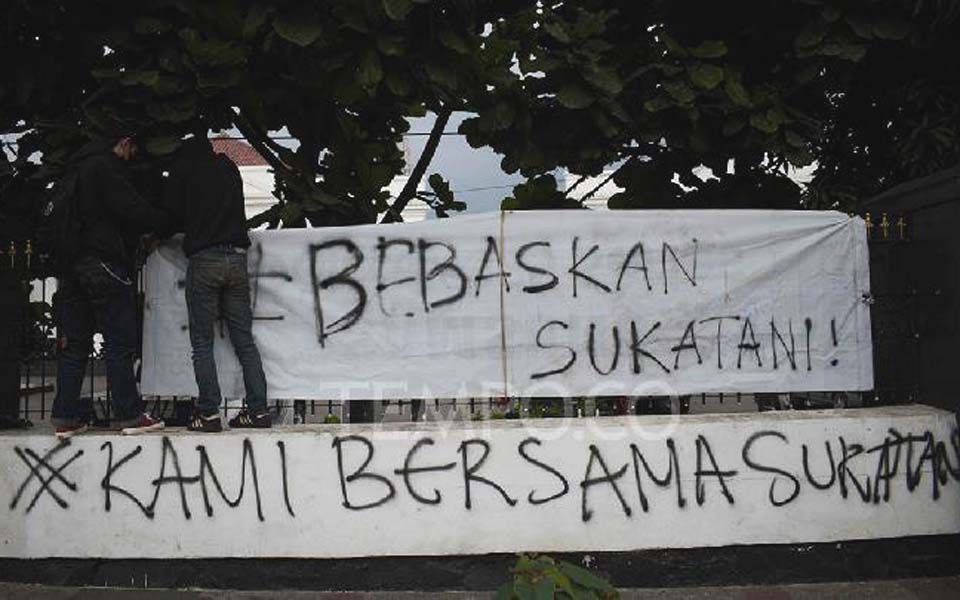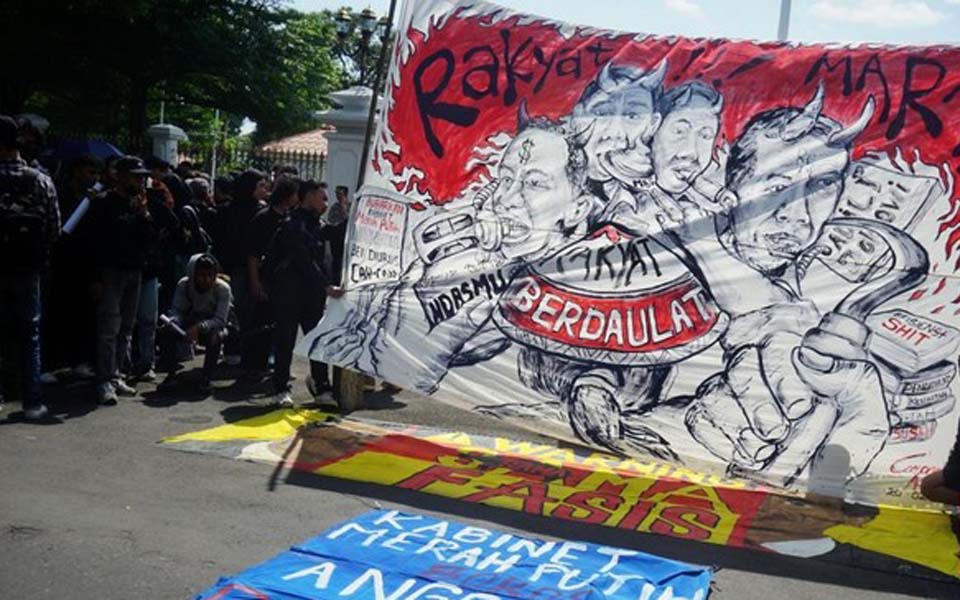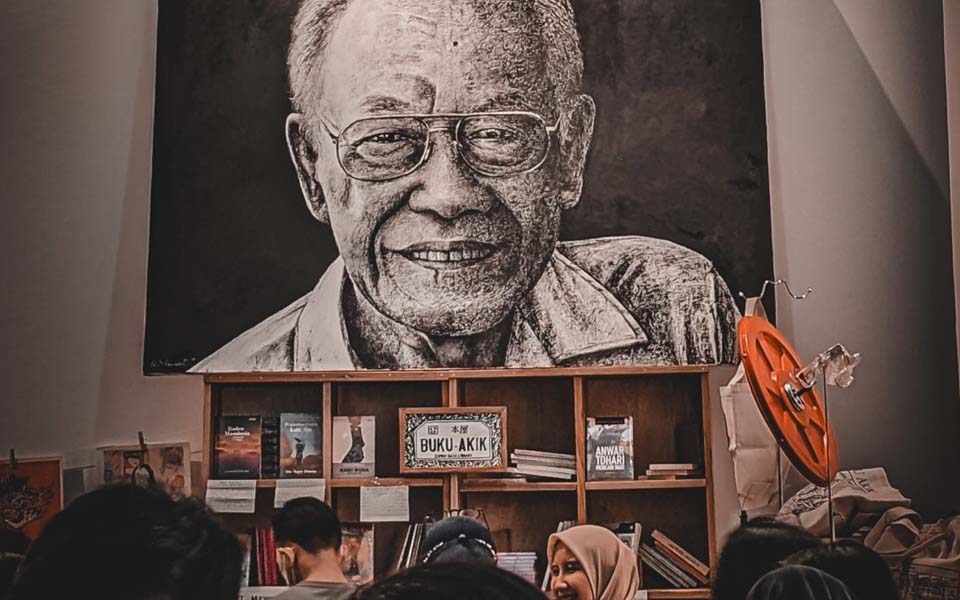Jakarta – Indonesian Legal Aid Foundation (YLBHI) Chairperson Asfinawati has responded to plans to revise the Information and Electronic Transaction (ITE) Law.
Asfinawati said that revisions to the ITE Law are indeed much needed but this is not enough to guarantee freedom of expression.
"But this isn't good news yet, only partly, we also need to look at how far the revisions go", said Asfinawati when contacted by CNN Indonesia on Tuesday February 16.
Asfinawati emphasised that many articles in the ITE law must be abolished. First and foremost is Article 27 Paragraph (3) which is open to multiple interpretations.
"In the case of the KUHP [Criminal Code] the article is clear, 'whosoever insults another person', but in the ITE Law it reads, 'Anyone who intentionally or without the right distributes material which carries an insult and or tarnishes the good name [of a person]', so in the end it's open to multiple interpretations", she explained.
Then there is Article 28 Paragraph (2) on hate speech, Article 29 on the threat of violence and other problematic catchall articles. Asfinawati says that any revisions to the ITE Law must address these problematic articles. "So we need to see how far these revisions go", she said.
According to Asfinawati, revisions to the ITE Law would only provide freedom of opinion on social media. But conveying an opinion in public by means of demonstrations for example would still be subject to the threat of criminalisation even though the ITE Law has been revised.
"Freer criticism in the digital [sphere], yes, that's if the revisions go far enough. But criminalisation for articulating an opinion in public or demonstrations, no", said Asfinawati.
This is because according YLBHI's data, attacks on freedom of expression are not just because of the ITE Law but also from things like a recently issued Indonesian police chief telegram (ST).
She was referring to ST/1100/IV/HUK.7.1/2020 on dealing with cyber crimes during the Covid-19 pandemic. This telegram threatens freedom of expression because it has the potential criminalise people for criticising the president or the government.
"It would be easy for the president, all it needs is an order [to revoke it]", said Asfinawati. "So there are many reforms which have to be carried out so that there is no criminalisation of freedom of expression", she said.
Coordinating Minister for Security, Politics and Legal Affairs, Mahfud MD said recently that the government is currently discussing revisions to the ITE Law. This was not long after President Joko "Jokowi" Widodo also touched on the possibility of revising the catchall articles in the law.
"If the implementation [of the law] gives rise to feelings of injustice, then this law needs to be revised. Abolish the catchall articles which are open to multiple interpretations, which are easily interpreted arbitrarily", said Widodo in a posting on his Twitter account @jokowi. (mel/ugo)
Notes
In its 2020 Annual Report on Law and Human Rights released on January 26, the YLBHI found that there were 351 cases of civil rights violations in 2020, the majority of which were violations against freedom of expression. The group said that most violations were committed by the police and military and concluded that the state continues to use a repressive approach which is eroding civil freedoms and threatens democracy.
According to the Southeast Asia Freedom of Expression Network (SAFEnet), between 2008 (when the law was enacted) and 2019, the ITE Law has been used to prosecute 285 cases. The rate of prosecution increased in 2020 during the Covid-19 pandemic with some 110 people being charged.
The Civil Society Coalition reported that between 2016 and 2020, 96.8 percent (744 cases) of prosecutions under the ITE Law resulted in convictions and 88 percent resulted in incarceration.
[Translated by James Balowski. The original title of the article was "YLBHI: Revisi UU ITE Tak Cukup Jamin Kebebasan Berpendapat".]






